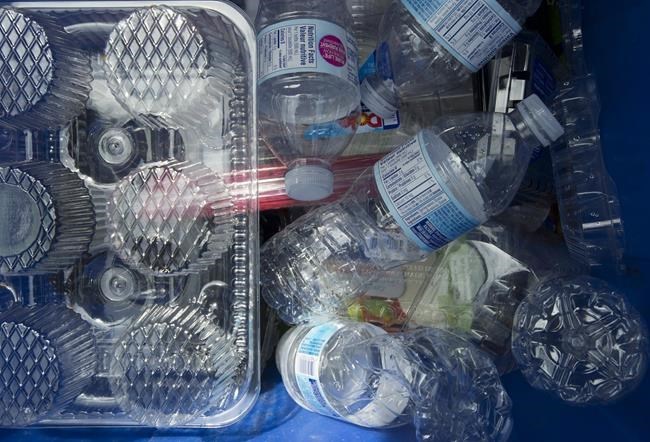A group of plastic industry leaders is launching a court challenge of the Canadian government’s designation of plastic goods as toxic and saying the government should focus on recycling efforts as a solution.
The Responsible Plastic Use Coalition, made up of large manufacturers like NOVA Chemicals, is arguing in federal court that designating plastics as toxic under the Canadian Environmental Protection Act was not done for scientific reasons, but instead for a political agenda to eventually ban single-use plastics.
“We think that it doesn’t address the real problem which is plastic waste, not the toxicity of plastic,” said RPUC executive director Randi Rahamim, who said most of the everyday items we use are plastic.
“We need to have a solution that addresses the real problem. We want policy based on science not politics.”
Plastic manufacturers are arguing that the real solution is to invest in improving recycling management so that plastic items don’t end up in landfills and waterways.
However, Environment Canada said the government is moving to improve recycling standards while also tackling the amount of plastic being produced.
“We recognize that the plastics that can be easily recycled play an important role in our everyday lives and economy, as do many responsible industry leaders who are also taking action to address this issue,” said minister of environment and climate change Jonathan Wilkinson in a statement.
“When only 9 per cent of plastics are recycled, we have a serious problem that requires serious leadership.”
He said the move to label plastics as toxic is based on facts and part of the government’s actions to ban single-use plastic in the country.
Jessica Green, an associate professor at the University of Toronto who specializes in climate governance, said the RPUC’s court challenge is a “standard” response from an industry trying to protect itself against the costs of regulation.
“From a political and regulatory view it makes sense for the Canadian government to signal that they’re going to get very serious about regulating plastic,” said Green.
“I think an appropriate response from the industry would be, ‘okay, this is coming up the pipeline and it's time for us to start making changes.”’
Green said focusing on better recycling programs alone is not a climate-friendly solution, especially since the production of plastic relies on the extraction of fossil fuels.
However, the plastic coalition argues that plastic goods are the most environment-friendly solution in certain cases, such as plastic water pipes, which it says have a long lifespan and aren't harmful to humans.
Rahamim said the designation of all plastics as toxic will harm manufacturers who produce those goods, and who provide thousands of manufacturing jobs — many of which are in small communities.
“I think of companies like Emmerson Packaging, which is one of the largest employers in Amherst, N.S.,” said Rahamim
“That’s a huge problem when you’ve got uncertainty in the marketplace, and what does it mean for them and their employees and for that community?”
The RPUC’s notice of application was filed earlier this month, and the courts will undertake a cross examination of affidavits from both sides on the issue by August.
This report by The Canadian Press was first published May 20, 2021.
Salmaan Farooqui, The Canadian Press



